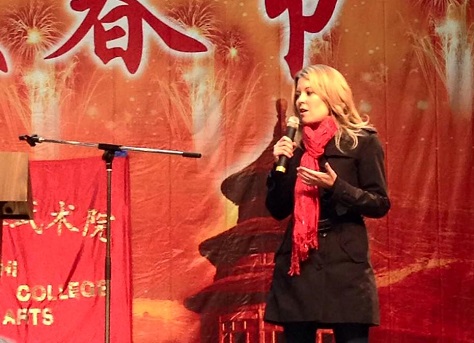
So far, the race to succeed Stephen Harper as the next leader of Canada’s Conservative Party has been notable for the level of disinterest it’s drawn — not a single candidate has yet announced a campaign for the leadership.![]()
Despite wild speculation about who might want to take the reins of Canada’s soon-to-be opposition, some of the most well-known potential contenders have already ruled themselves out of contention — former Québec premier Jean Charest (himself a one-time leader of the old Progressive Conservative Party), former New Brunswick premier Bernard Lord, Saskatchewan’s wildly popular two-term premier Brad Wall, former foreign minister John Baird.
But there’s one potential candidate who isn’t being coy about her intentions.
It’s Michelle Rempel, a 35-year-old MP from Calgary who’s been in office only since 2011. Born in Winnipeg and of partial French Canadian ancestry, she worked in development at the University of Calgary before jumping to politics, winning the by-election when Jim Prentice left federal politics for the private sector (and before Prentice returned to provincial politics for a disastrous run leading Alberta’s government). She quickly made a splash in the House of Commons and in 2013, Harper recognized her talents by appointing her as a junior minister for western economic diversification.
In an odd — and at turns, confident, caustic and compelling — Twitter rant in the middle of the night on October 22, Rempel made the case for her potential leadership, sometimes making the case against casual misogyny in everyday politics that would make Hillary Rodham Clinton proud.
It’s worth reading in full: Continue reading Rempel’s amazing Twitterstorm kicks off Conservative leadership race
